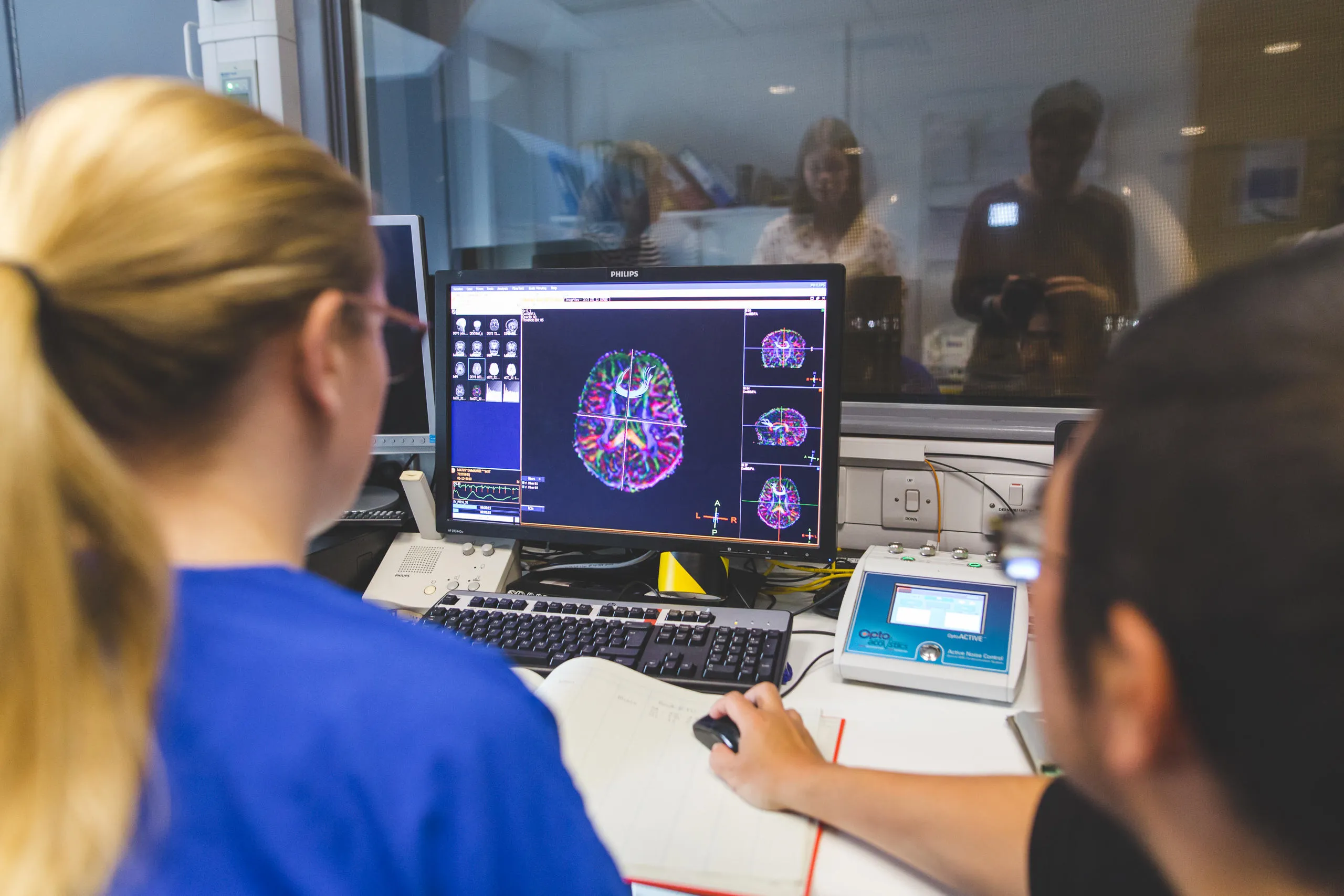The Department of Early Life Imaging's research aims to improve the diagnosis and treatment of diseases that begin in the perinatal period using a cutting edge combination of powerful new imaging technologies, computational analysis methods, and clinical medicine.
Working with St Thomas’ Hospital and Evelina Children’s Hospital, our clinicians, scientists and academics study the causes and consequences of perinatal pathology from fundamental science through to clinical practice.
Current Areas of Research
The department is active in many research areas including:
- Brain Development
- Neurobiology
- Imaging Physics
- Perinatal Imaging
- Advanced Neuroimaging
- Cardiovascular Imaging
- Clinical Studies
- Image Analysis and Modelling
The Early Life Imaging Department is actively recruiting for several projects that are scanning during pregnancy as well as shortly after birth. The videos below demonstrate the process of scanning at these different time points.
If you want to find out more about the active research studies that are imaging during pregnancy or shortly after, please contact: gst-tr.fetalbookings@nhs.net or call us at 0207 188 7083.
Core Facilities & Infrastructure
The Research Department of Early Life Imaging is part of the School of Biomedical Engineering and Imaging Sciences at King’s College London. The department performs cutting-edge research dedicated to the development and use of the most advanced medical imaging (in particular MRI scanning) and computational methods. Ultimately, our vision is to develop new ways to diagnose, understand and ultimately treat illnesses that affect the human brain, heart and body as they develop during the crucial period around birth so that we can improve outcomes for children. Placed uniquely within St Thomas’ Hospital London, we are able to perform truly translational research, which extends from basic science to use in the hospital with patients.
We have over 70 members of staff with diverse but complementary skills and experience including clinical staff (doctors, nurses, midwives, radiographers), biologists, computer scientists, physicists, engineers, and research governance and administration. This ensures that by working together, everything we do can benefit from the very best skills across all of the key areas needed to conduct and support our work.
Our department has an advanced MRI scanning facility (the Evelina Newborn Imaging Centre (ENIC)) in the Neonatal Intensive Care Unit at St Thomas’ Hospital. This means that we are able to perform MRI scans on even the sickest and smallest babies who require intensive care support, pregnant women so we can assess the health of the fetus or placenta and children with neurological conditions such as epilepsy. In the facility, we have a state-of-the-art MRI scanner which is dedicated to our work, a portable ultra-low-field Hyperfine MRI scanner, dedicated assessment rooms and a ward space for completing psychological tests and medical examinations. We also use the cutting-edge infrastructure and facilities from across the School of Biomedical Engineering and Imaging Sciences which include one of only a handful of ultra-high field 7 Tesla MRI systems in the UK, engineering laboratories, a further 6 MRI scanners with field strengths varying from 0.55 Tesla to 3 Tesla, a MedTech cluster to support and progress the next generation of technologies, and advanced computing capabilities.
